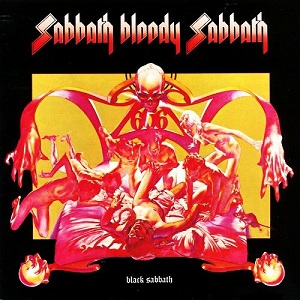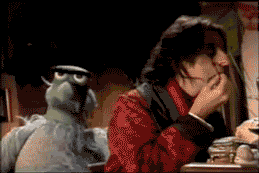
Quote:
With 1973's Sabbath Bloody Sabbath, heavy metal godfathers Black Sabbath made a concerted effort to prove their remaining critics wrong by raising their creative stakes and dispensing unprecedented attention to the album's production standards, arrangements, and even the cover artwork. As a result, bold new efforts like the timeless title track, "A National Acrobat," and "Killing Yourself to Live" positively glistened with a newfound level of finesse and maturity, while remaining largely faithful, aesthetically speaking, to the band's signature compositional style. In fact, their sheer songwriting excellence may even have helped to ease the transition for suspicious older fans left yearning for the rough-hewn, brute strength that had made recent triumphs like Master of Reality and Vol. 4 (really, all their previous albums) such undeniable forces of nature. But thanks to Sabbath Bloody Sabbath's nearly flawless execution, even a more adventurous experiment like the string-laden "Spiral Architect," with its tasteful background orchestration, managed to sound surprisingly natural, and in the dreamy instrumental "Fluff," Tony Iommi scored his first truly memorable solo piece. If anything, only the group's at times heavy-handed adoption of synthesizers met with inconsistent consequences, with erstwhile Yes keyboard wizard Rick Wakeman bringing only good things to the memorable "Sabbra Cadabra" (who know he was such a great boogie-woogie pianist?), while the robotically dull "Who Are You" definitely suffered from synthesizer novelty overkill. All things considered, though, Sabbath Bloody Sabbath was arguably Black Sabbath's fifth masterpiece in four years, and remains an essential item in any heavy metal collection.
Quote:
From Rolling Stone: FEBRUARY 13, 1974
Though they are best known as the planet's premier heavy-metal band, Black Sabbath's major contribution has been to successfully capture the gist of specifically Seventies culture through their music. They relate to this impersonal, mechanical decade much as Delta bluesmen and their Chicago spin-offs related to their eras — by synthesizing collective feelings and giving their contemporaries hope by revealing the disaffection that units all of them. In that remote but real sense, Black Sabbath might well be considered true Seventies bluesmen.
Many will no doubt laugh, but I can think of no other group that has so consistently spoken in the musical language of its times. The power chord, that brief but brutal third-generation staple, has always been Sabbath's major medium, the aural twin of the metallic age surrounding us. And, as such technical advances as the mellotron and Moog have risen to the musical fore, they've been incorporated into Sabbath's sonic setting, the computerized musical counterparts of a cold, programmed world.
But it's Sabbath's lyrics that have been the instant conveyor of their message, accompanying a dedicated cadre through a multiplicity of emotions and worldly experiences. Ossie Osbourne possesses an eternal teenager's tones, voicing the vicarious existence of youth "lost in the wheels of confusion." On songs like "Iron Man," "Wicked World" and "Children of the Grave" he's blended with the band in a well-nigh perfect vocal/instrumental portrayal of the violently schizophrenic emotions of the ostracized elite, riddled with ridicule for their latter-day Cassandrian visions.
Through drugs ("Sweet Leaf" and "Snowblind") and religion ("After Forever") Sabbath have stayed with the quest for an answer, culminating their search in such heavy-metal odes as "Into The Void" and the spectacular "Supernaut," the latter revealing in its final verse their belief that sanity is assured only through dogged belief in one's self to the exclusion of all else.
Which brings us to Sabbath, Bloody Sabbath, on which the band both fully accepts this dictum and grows comfortable with it. Through enough solid heavy-metal to satisfy even the staunchest metallurgist ("Sabbra Cadabra," "Looking For Today" and the title tune lie firmly within the band's accustomed format — a logical extension of the Who's classic mid-Sixties formula) they search for peace in the eye of the hurricane of life. In fact, this record transcends third-generation rock in that it possesses a degree of internal intricacy that belies popular conceptions of heavy-metal. The use of tempo changes and electronic keyboards to cast liquid emotions makes Sabbath, Bloody Sabbath an extraordinarily gripping affair.
"The blues oughtta make you wanna cry one minute, and make you wanna get up and dance the next." That's what Black Sabbath have always done for this believer, and in doing it again, Sabbath, Bloody Sabbath is nothing less than a complete success. Call it the blues of the decade, or heavy-metal — whatever the name for their music, Black Sabbath are a true Seventies band.
Code:
http://tinyurl.com/6xsmk6p






